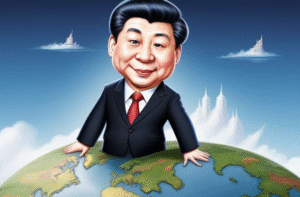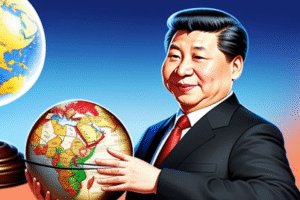$XOM $CVX #IranNews #NaturalGas #EnergyExports #Iraq #IranEconomy #OilMarket #Geopolitics #Trade #EnergyCrisis #MiddleEast
Why Have Iran’s Gas Exports to Iraq Plummeted? Discover the Impact!
Recent reports indicate that natural gas exports from Iran to neighboring Iraq have dropped significantly, declining by 40% between April and August this year. This decline extends an ongoing downward trend that has been observed since 2024. The information, sourced from the Trade Promotion Organisation of Iran, raises important questions about the factors contributing to this slump. Notably, the reasons for this decline in exports have not been disclosed.
During this five-month period, the total value of gas exports to Iraq reached approximately $950 million. This figure starkly contrasts with the higher export values recorded during the same months in 2024. Furthermore, an earlier report revealed that all Iranian exports to Iraq experienced an overall decrease of 18% year-on-year in the same timeframe. These developments have significant implications not only for Iran’s economy but also for regional energy dynamics.
Understanding the Broader Context
The steep drop in Iran’s gas exports to Iraq can be attributed to several interconnected factors. Geopolitical tensions in the region have historically impacted trade relationships, and the current scenario is no exception. The evolving landscape of international sanctions has placed additional pressure on Iran’s ability to engage in lucrative trade deals and maintain consistent supply chains.
Moreover, domestic issues within Iran, such as economic instability and infrastructure challenges, may have contributed to the decline in export capacity. As the Iranian government struggles to manage its resources effectively, the reliability of gas exports could be compromised. Thus, it’s crucial to understand how these internal factors intertwine with external pressures to create a complex web of challenges for Iranian exports.
The Implications of the Decline
The ramifications of reduced gas exports extend beyond mere economic statistics. For Iraq, which relies on Iranian gas to meet its energy needs, this decline poses significant challenges. The energy sector in Iraq has been under strain, making dependence on Iranian gas a critical concern. As a result, the Iraqi government may be compelled to seek alternative sources of energy, which could reshape the regional energy landscape.
For Iran, the diminishing export volumes represent not only a loss of revenue but also a potential shift in geopolitical power dynamics. As countries reassess their energy partnerships, the implications for Iranian influence in the region could be profound.
Future Outlook: Can Iran Recover?
Looking ahead, the potential for recovery in Iran’s gas export sector hinges on various factors, including the resolution of geopolitical tensions and improvements in domestic economic conditions. If the Iranian government can address the underlying issues affecting its export capabilities, there may be opportunities to regain market share in the region. However, until these challenges are effectively managed, the prospects for a rebound appear uncertain.
In conclusion, the decline in Iran’s gas exports to Iraq serves as a critical reminder of the intricate balance between local and international factors that influence energy markets. As stakeholders analyze these developments, the situation underscores the importance of adaptability in an ever-evolving geopolitical landscape.
For more insights into stock market trends, visit relevant text. Additionally, explore investment strategies in the crypto space through relevant text.
Stay tuned for more updates and analyses in the realm of iran news and global economics.











Comments are closed.